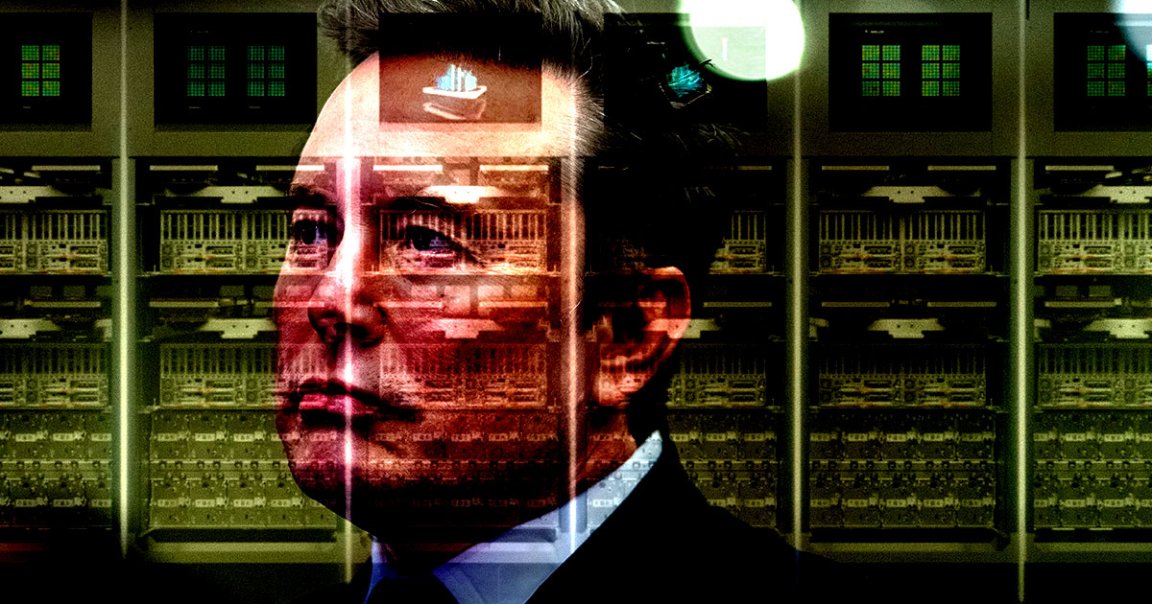
As sales continue to plummet worldwide, Tesla is giving up on building an in-house supercomputer for computer vision processing as part of its advanced driver assistance system.
As Bloomberg reports, the head of the project, dubbed Dojo and which CEO Elon Musk used to hype up immensely, is leaving the company. The team has already lost around 20 workers to a separate data center firm that’s been poaching former Tesla executives.
The rest of the team will reportedly be reassigned to other data center projects.
Considering that Musk has refocused the company’s efforts on a robotaxi service that relies on computer vision, it’s not exactly confidence-inducing. Musk once called Dojo a “beast,” but admitted last year that he had come to think of Dojo “as a long shot” because “it’s not something that is a high probability.”
“It doesn’t make sense for Tesla to divide its resources and scale two quite different AI chip designs,” Musk tweeted on Thursday.
Instead, per Bloomberg, Tesla is looking to rely on external tech partners, including Nvidia, AMD, and Samsung, for manufacturing AI chips. But the company isn’t giving up on its in-house chips entirely.
“The Tesla AI5, AI6 and subsequent chips will be excellent for inference and at least pretty good for training,” Musk wrote. “All effort is focused on that.”
Dojo was designed to train machine learning models powering Tesla’s Autopilot and so-called “Full Self-Driving” advanced driver assistance software.
But Tesla’s Dojo team quickly fell victim to surging competition. The enormous AI hype has led to major tech companies poaching key talent, offering staffers at competing firms absurd sums of money.
Even beyond its AI efforts, Tesla has suffered from a major brain drain, with key execs leaving the company in droves.
The carmaker is still grappling with the consequences of Musk’s well-documented embrace of far-right ideologies, causing sales to plummet and leaving a massive hole in its finances.
Even its efforts to develop self-driving car technologies have been chaotic and underwhelming. Its initial rollout of a robotaxi service in Austin, Texas, has been plagued by technical issues and terrifying near misses.
Last week, Tesla was handed one of its biggest legal blows yet when a Florida jury deemed the EV maker partially responsible for a fatal collision involving its Autopilot software, a decision that will force it to pay out nearly a quarter billion dollars.
Despite the warning signs, investors have been propping up Tesla’s market cap of well over $1 trillion. Shares are up over ten percent over the past month.
During the company’s second earnings call last month, Musk revealed that the company was looking “to find convergence,” producing a single AI chip for “Dojo 3.”
But now that the Dojo team has reportedly been disbanded in its entirety, it’s unclear what the future of Tesla’s supercomputer efforts will look like. Was it yet another massive distraction by Musk?
For now, it appears far more likely that Tesla will have to continue to rely on externally-sourced hardware. The company has already signed a $16.5 billion deal with Samsung for AI semiconductors, indicating that the days of its in-house chips might soon be numbered.
More on Tesla: The Tesla Diner Is Already Falling Apart Under Mismanagement